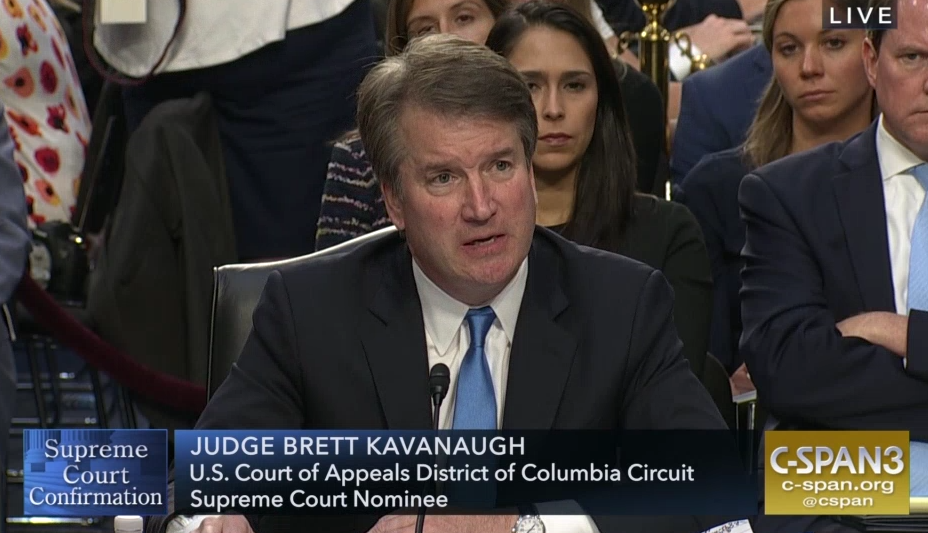Kavanaugh Defends Dissent in Net Neutrality Decision

The smarter way to stay on top of broadcasting and cable industry. Sign up below
You are now subscribed
Your newsletter sign-up was successful
Supreme Court nominee Brett Kavanaugh defended his dissent from a network neutrality court decision under questioning from Sen. Amy Klobuchar (D-Minn.), signaling he was following the law, not favoring a particular outcome.
That came in the second day of his nomination hearing in the Senate Judiciary Committee.
Kavanaugh, who is a judge on the U.S. Court of Appeals for the D.C. Circuit, had supported ISPs' petition for a full-court rehearing of the decision upholding the FCC's Title II reclassification of internet access service, a reclassification FCC chairman Ajit Pai ultimately reversed. The full court denied the petition and Kavanaugh dissented.
Related: Judge Kavanaugh Pledges to Be a Team Player
Kavanaugh said the FCC rules were unlawful and should have been vacated. Klobuchar had supported the rules.
Asked to defend that dissent, Kavanaugh said he was simply following a pattern of precedent, in this case a Supreme Court doctrine related to the Chevron doctrine, which generally defers the interpretation of ambiguous statutes to an agency's expertise in its particular subject area.
That is the "major decisions" doctrine that says a court should not grant such deference if Congress had not spoken clearly on the subject, which he said had not happened with the net neutrality rules.
The smarter way to stay on top of broadcasting and cable industry. Sign up below
"It's OK for Congress to delegate various matters to the executive agencies to do rules," he told the senator. "But on major questions of major economic or social significance, we expect Congress to speak clearly before such delegation, and that's what had not happened, with my view, with respect to net neutrality and I felt bound by precedent."
Klobuchar suggested that rather than a pattern of precedent, it was a pattern of him stepping in.
Klobuchar said that the fact that he had said, or the distinction between major and minor, that he would know it when he saw it was the reason most of the other judges did not agree, though it would be hard to argue that if one subscribes to the doctrine, the rules on regulating the internet fall under that category.
Many in Congress, as well as FCC Chairman Ajit Pai, have conceded Congress could be clearer about the FCC's network neutrality regulatory authority, and have supported legislation to do just that.
Kavanaugh said earlier in the hearing that he was not anti-regjulation, just anti-unlawful regulation. He also said, when asked about the White House's touting of his record of overturning agency decisions some 75 times, that he figured he has probably ruled about as many times in favor of agency decisions, if not more.
The D.C. Circuit has principal jurisdiction over federal agency decisions, a point Kavanaugh made in pointing out there were probably "dozens and dozens and dozens and dozens" of times he had ruled in favor of agency decisions, rather than there being any pattern of "pro this or pro that."
Asked about his views on mergers, Kavanaugh said he believed the Supreme Court in the 1970s had moved away from a focus on the effect on competitors to the effect on competition, which in turn is the effect on consumers.
Contributing editor John Eggerton has been an editor and/or writer on media regulation, legislation and policy for over four decades, including covering the FCC, FTC, Congress, the major media trade associations, and the federal courts. In addition to Multichannel News and Broadcasting + Cable, his work has appeared in Radio World, TV Technology, TV Fax, This Week in Consumer Electronics, Variety and the Encyclopedia Britannica.

